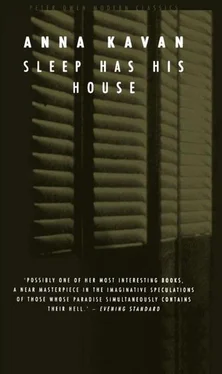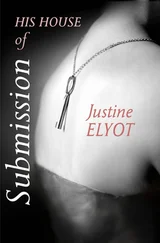Certainly it’s disappointing from the angle of sightseers who may have come from the city in some hot dusty overcrowded motor-coach, to find such an inviting spot hedged round with NO TRESPASSING notices. One can see the point of view of such people and sympathize with their feelings as they peer through the fence at the cool tempting glades and flowery dells on the other side. What a perfect place for our picnic, they are doubtless saying to one another. And doubtless they feel indignant at the idea of an individual landowner having the exclusive right to enjoy this delightful spot.
But one must look at the other side of the picture as well. Isn’t there something to be said for the owner whose whole life is bound up with the property and devoted to maintaining it? Surely he earns the right to his privacy. Especially as he is almost certain to be one of those extremely sensitive people, of an entirely different order from the ordinary run of humans, and totally unfitted to live at close quarters with them. Deprive him of his seclusion and you deprive him of everything: perhaps even of life itself; for it’s more than doubtful whether his delicate organism would survive such a shock. I don’t mean to imply by this that our landowners as a class are particularly asthenic or that their hold on life is specially weak. On the contrary, we have all heard instances of these gentry displaying astonishing fortitude in defence of the things which they consider valuable. They will go to the most extravagant lengths in such circumstances; whether it’s on behalf of an ideal or something concrete. But without these value objects — and being private is certainly one of the most important of them — they seem to lose interest in the world and to retreat from it accordingly. It’s as if they presented their terms to life, and, the terms being rejected, quietly and proudly withdrew from the scene, preferring non-participation to compromise. Not good enough for me, you can imagine some old squire saying with a half-humorous, half-sardonic inflexion, in face of an ultimatum. And then he will take his departure without any fuss at all, unobtrusively abandoning the stage. For how can he, for so long the sole proprietor of a vast demesne, lower himself to associate with the public in an existence of base competition? No, you can’t expect the descendant of a proud race, with centuries of tradition behind him, to tolerate the desecration of vulgarians; and you can’t blame him either if, before making his exit, he secretly destroys his dearest possessions rather than have them fall into the hands of the mob.
The trend nowadays is towards more and more collectivism. Of course nobody denies that the good things of the world should be equally accessible to all, and that the owning of property by individuals is in theory deplorable. But it seems to me that careful consideration should be given to the case of the landowners who, far more often than not, are hardworking, abstemious men of high moral principles. Taking a broad view, is it really the best policy to eject them summarily from the positions which they alone are qualified to fill? Qualified, what’s more, not only by personal training but by all sorts of hereditary influences, the value and power of which are not yet fully understood. Admittedly, from the collective standpoint, an estate, no matter how perfectly run, is ideologically valueless unless it is accessible to the community. On the other hand, if such an estate is delivered over lock-stock-and-barrel to incompetent and inexperienced managers, it will soon become factually valueless too. Would it not be possible to evolve some system under which the status quo could be maintained — perhaps until the death of the present proprietors — meanwhile raising the educational standard so that the general public will be fitted both to administer the estates efficiently and to appreciate them to the greatest advantage?
The problem, at any rate, seems worthy of study. To my mind, a very real danger exists of irreplaceable treasures being lost to the community through the thoughtless vandalism of uninstructed persons, if all these great places are suddenly thrown open indiscriminately.
What happens when a crowd of holiday makers bursts into such a property? They will uproot plants and damage trees which have taken many decades to reach maturity; they will leave gates open, allowing valuable animals to stray and to ruin the gardens; inside the house no object will be secure. In an hour or so the work of generations of skilled craftsmen will be destroyed.
Don’t think that I’m attacking the common people or condemning their high spirits. All I want is to make sure that they don’t lose sources of future pleasure through receiving them prematurely before they have had opportunities of learning to appreciate their true worth. That’s why I’m entering this plea on behalf of the old landowners.
There has been a tendency lately to speak of these men as dissolute degenerates, given to all sorts of perversions. Let me assure you that in my experience this is by no means the case. In the course of events I have come in contact with a number of them, and they have all been individuals of integrity and moderation, one or two even fanatically ascetic in their personal lives, although naturally their outlook is entirely different from ours. I don’t want to appear as a partisan of the landowning class. Indeed, I am aware that I have already pressed their claims beyond the limits of personal prudence. But I would be dishonest to myself if I were to refrain from making a final appeal for serious consideration of the whole difficult problem.
While the Liaison Officer is reading the last few sentences a bell starts to ring, at first distantly, becoming louder and more insistent as the dream grows correspondingly more transparent. Finally he is seen closing his book, preparing to remove his halo, laughing spectrally for an instant, before he dissolves altogether with the disrupted dream.
NOW I understood why I had to prevent the day world from getting real. I saw that my instinct about this was a true one. As my eyes grew more discerning, I recognized my enemy’s face and I was afraid, seeing there a danger that one day might destroy me.
Because of my fear that the daytime world would become real, I had to establish reality in another place.
TRUTH, it’s everything. The man who said, What is truth? certainly touched on a big subject. The truth of the matter is that there’s far too much truth in the world. The world, from whichever point you observe it, is altogether too full of truth. It isn’t easy to recognize this truth in the first place, but it’s impossible ever to ignore it once it’s been grasped.
Every single possibility or impossibility is true somewhere to someone at some time. It’s true that the earth is as round as an orange and as flat as a pancake. It’s true that the wicked island goddess Rangda is a good goddess when she takes off her mask. Black magic on top, white magic underneath. That proves that black’s white, doesn’t it?
It’s true that the idea of America is a bright and shining thing in the mind. It’s true that the idea of America is a crude and brutal land inhabited by adolescents and gangsters.
Defeatism’s true; war’s true. So’s idealism and the hope of a better society. You pay your money and you take your choice. Civilization’s gone down the drain. Utopia’s just round the comer.
It’s true that civilization marches on: atomic energy plus universal war. The Hallelujah Chorus from Handel’s Messiah; H.M.V. recording. That’s a truth, although universal war. There’s the truth that you go to bed with and the truth that wakes you up at three o’clock in the morning when the tigers are jumping up and down on the roof and eternity is flapping at the earth like somebody shaking a rug. There’s the truth of loving and hating, being an extrovert and an introvert, a success and a failure, travelling all over the world, living your whole life in one place, having security, accepting all risks. Then there’s the truth that you find with the dirty glasses stacked in the sink. That’s a different sort of truth.
Читать дальше












